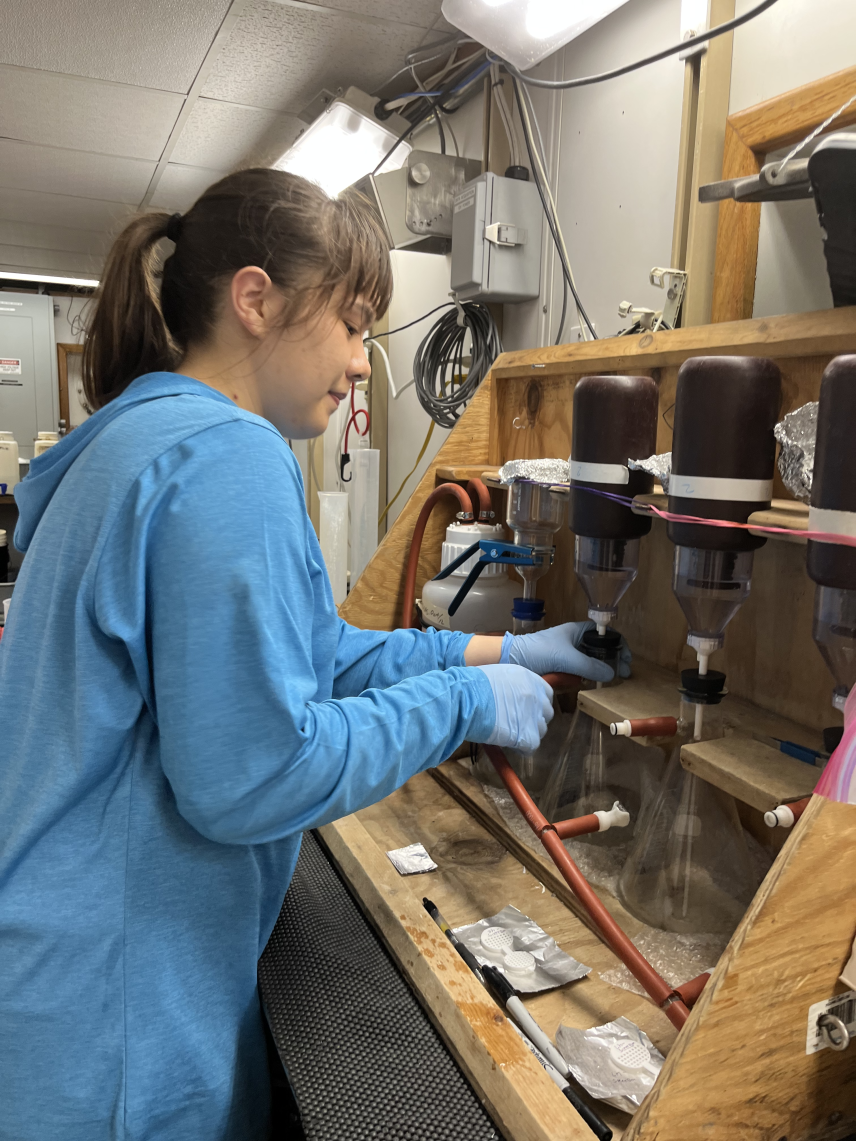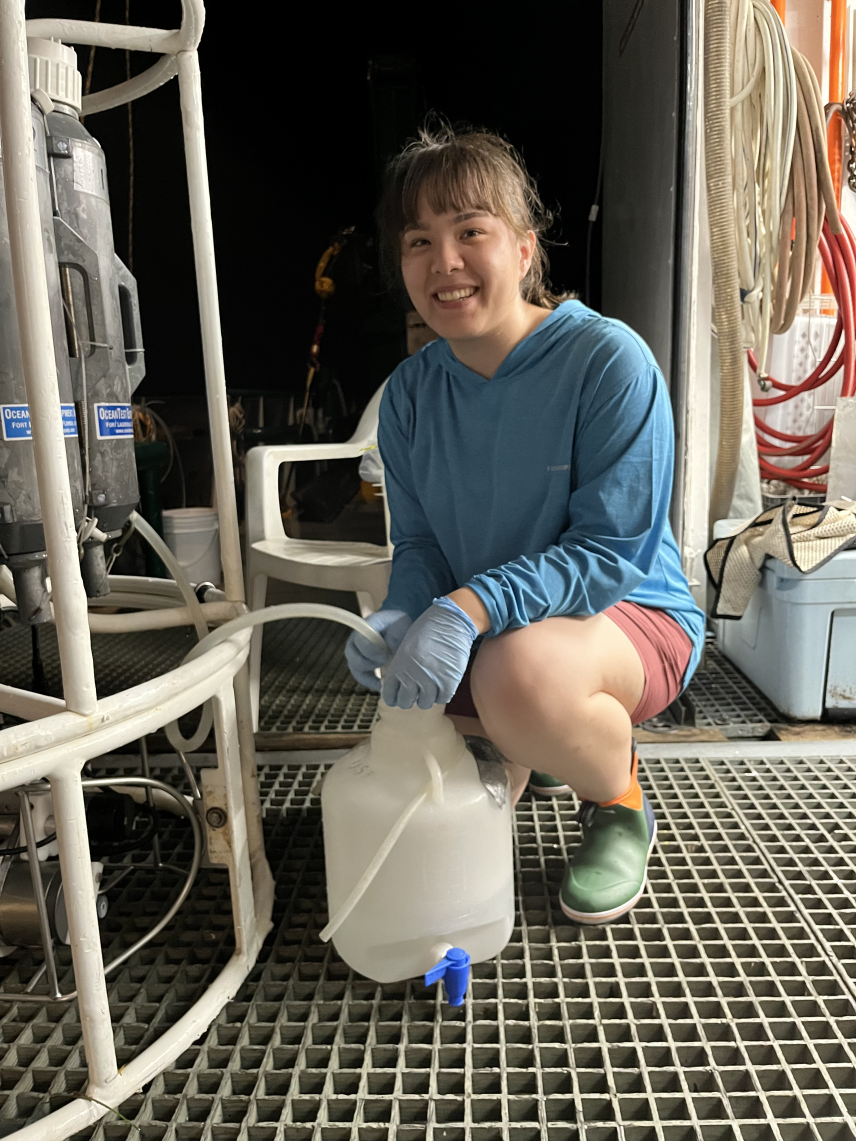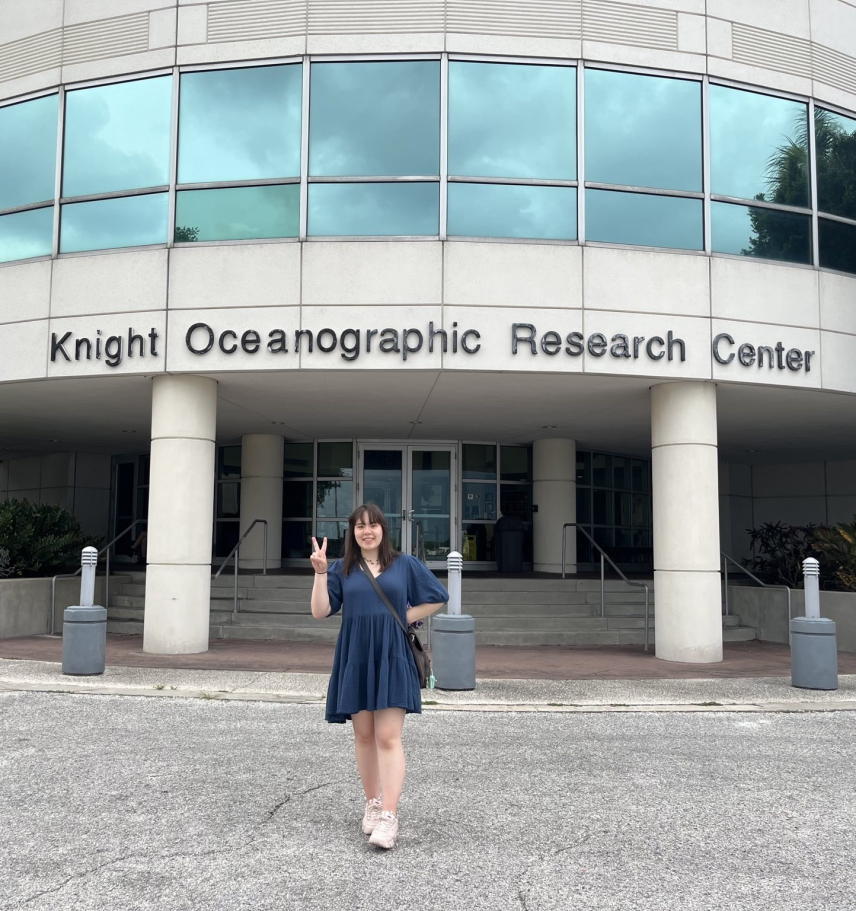Hi everyone! My name is Anna Finch. I’m a Hollings scholar, class of 2021, and a student in oceanography and biochemistry at the University of Washington. This past summer, I moved across the country from Seattle, Washington, to St. Petersburg, Florida, to complete my Hollings internship at the Institute for Marine Remote Sensing offsite link at the University of South Florida, St. Petersburg. I worked on a project investigating seasonal variations in the phytoplankton community in the Florida Keys National Marine Sanctuary. Phytoplankton are also known as microalgae, and they are a primary food source in ocean food webs. I learned about field research, data analysis, and coding skills that I’m excited to bring forward into my future career!

My internship research
We used a method for analyzing phytoplankton communities that measures the relative amounts of specific pigments in samples of sea water. This approach detects the amounts of different groups of phytoplankton called pigment-based functional types, which are grouped by specific pigment ratios. Measuring pigment-based functional types is important because phytoplankton diversity and distribution affect processes such as ocean food webs and biogeochemical processes. Some examples of pigment-based phytoplankton functional types are dinoflagellates, cryptophytes, and several different types of diatoms and cyanobacteria. Analyzing phytoplankton communities using this method is faster and more cost-effective than identifying them under a microscope. It is also more effective for measuring very small phytoplankton.
Since my internship was only ten weeks and I wanted to investigate seasonal patterns, I used a dataset of pigment concentrations from 2016-2021. I put the pigment concentrations through a program called CHEMTAX to estimate the abundances of phytoplankton functional types. I analyzed the data using R, a statistical analysis program, and learned a lot about statistics during my internship!

Opportunities beyond my research project
In addition to data analysis, I had the chance to go on two research cruises! The first was a three-day cruise for servicing buoys and the second was a week-long expedition in which I helped to collect samples of phytoplankton pigments, environmental DNA, and chromophoric dissolved organic matter. Despite some struggles with seasickness, it was great gaining experience in the field and getting to know others in oceanography during my time on the vessel.

Lastly, I am very appreciative of the mentorship and support as well as the connections I built with others in marine science during my internship. I got to work with groups such as the Marine Biodiversity Observation Network (MBON) and the Southeast Coastal Ocean Observing Regional Association (SECOORA). I met so many wonderful people that I plan to stay in contact with and would love to work more with in the future.
I’ve grown and changed so much as both a person and a scientist during my internship, and I am immensely grateful for such a transformative experience.
Overall, I loved living in St. Petersburg: great people, delicious food, cool wildlife and plants, and a gorgeous location! I’ve grown and changed so much as both a person and a scientist during my internship, and I am immensely grateful for such a transformative experience. I highly encourage all interested students to apply for the Hollings Scholarship!

Anna Finch is a 2021 Hollings scholar and biochemistry major at the University of Washington.


